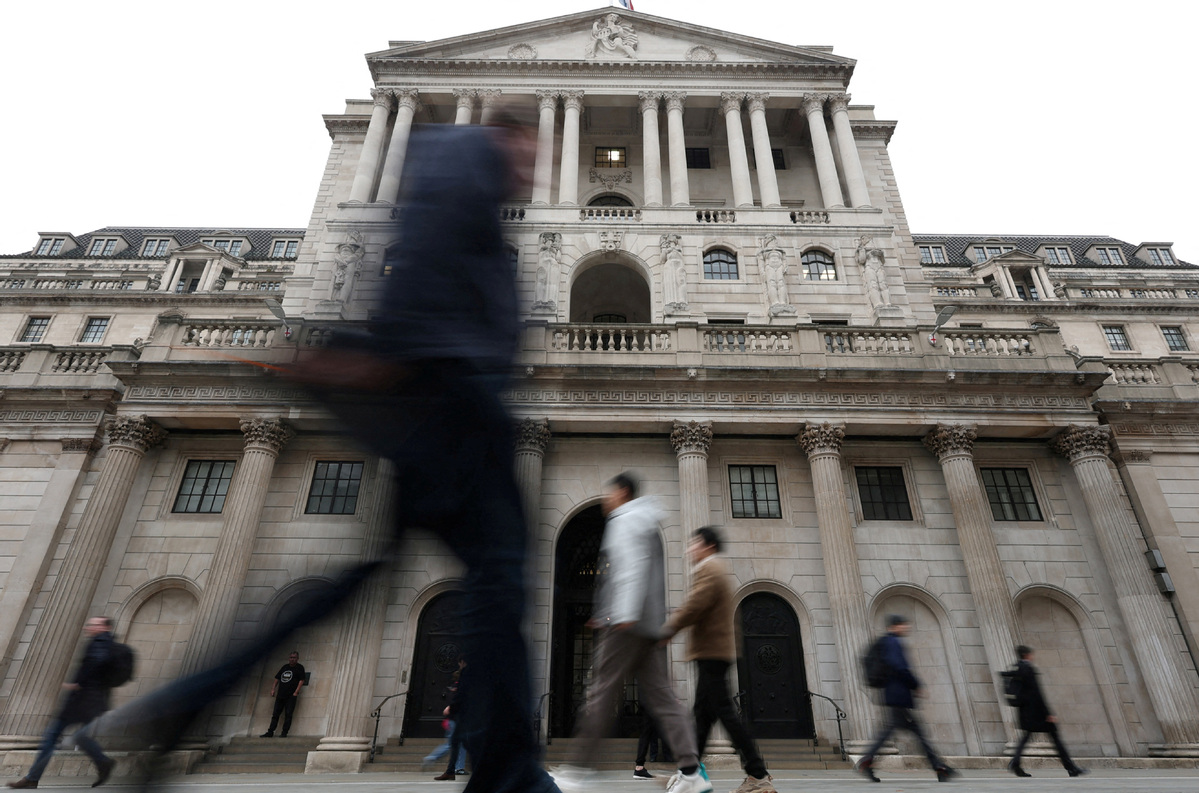
People walk near the Bank of England building in London, Britain, February 3, 2025. REUTERS/Toby Melville
There was more bad news this week for the United Kingdom's finance minister, and for millions of working families struggling to make ends meet, as the nation's inflation rate hit a 10-month high of 3 percent.
Economists had been expecting a rate of 2.8 percent.
The latest rate, which compares prices in January with prices from a year ago, was significantly and unexpectedly higher than the 2.5 percent it had been a month earlier, and was well above the central bank's 2 percent target.
Chancellor of the Exchequer Rachel Reeves, who has been criticized recently for allegedly exaggerating her experience in her online resume, insisted her plan for the country's economy is working, and that economic growth will offset inflation, saying a growing economy and resulting larger pay packets will mean "more pounds in pockets", something she says is her "number one mission".
"Since the election, we've seen year-on-year wages after inflation growing at their fastest rate – worth an extra 1,000 pounds ($1,258) a year on average – but I know that millions of families are still struggling to make ends meet," she said.
Reeves explained that she plans to expand the economy by "taking on the blockers to get Britain building again, investing to rebuild our roads, rail, and energy infrastructure, and ripping up unnecessary regulation".
She said her plan will "kick-start growth" and "secure well-paid jobs".
But lawmakers from the opposition Conservative Party and the Liberal Democrats insisted she was out of her depth, and was a poor manager of the economy.
Kevin Hollinrake, the Conservative Party's housing spokesperson, told GB News: "We were the fastest growing economy in the G7 and we're now the slowest growing economy."
The higher-than-anticipated inflation rate makes it less likely that the Bank of England will cut its core interest rate in March, as had been hoped, meaning mortgages and loans are unlikely to become cheaper, which will add to cost-of-living pressures on UK workers.
And the government's Treasury department acknowledged that hitting the Bank of England's 2 percent inflation target, which would ensure a low interest rate, will continue to be difficult in the medium term, with inflation expected to rise to 3.7 percent later this year because of anticipated rises in energy prices.
The Office for National Statistics, which calculates the inflation rate, said the overall Consumer Price Index rise in January was largely down to high prices for air fares, food, and private school fees, with food prices alone jumping in January by a worrying 1.2 percent, from 1.9 percent to 3.1 percent.
However, the Labour Party government's supporters said the inflation rate today pales into insignificance when compared to the 11.1 percent it hit during 2022, under the previous Conservative Party administration, which was a 40-year high.
earle@mail.chinadailyuk.com